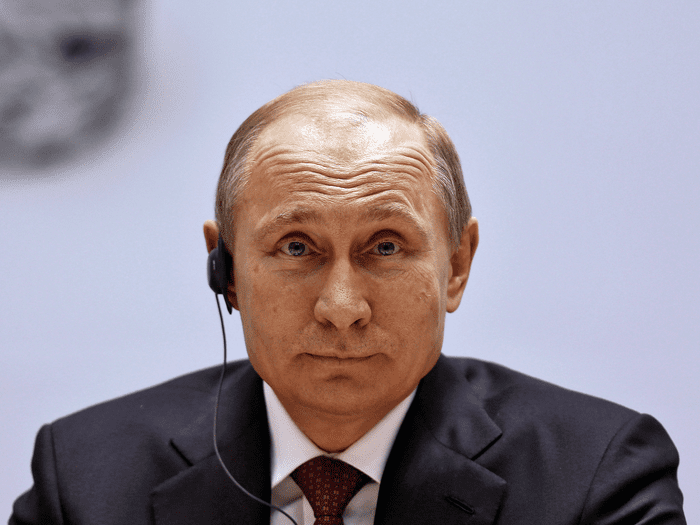This article presents a list of the 10 most influential world leaders of all time, highlighting their significant contributions to world history and the lasting impact of their legacies. The list includes figures such as Genghis Khan, Julius Caesar, Napoleon Bonaparte, Alexander the Great, and George Washington, who led military conquests and political reforms that shaped their respective countries and the world at large. It also includes influential political figures who championed democracy, human rights, and social justice, such as Mahatma Gandhi, Nelson Mandela, and Vladimir Lenin. Their legacies continue to inspire leaders and shape the course of history today.
The 10 Most Influential World Leaders of All Time
1. Genghis Khan
Genghis Khan was the founder and emperor of the Mongol Empire, which was the largest contiguous empire in world history. He ruled from 1206 to 1227 and conquered territories from Eastern Europe to Central Asia. He was known for his military campaigns and tactics, which allowed the Mongol Empire to expand rapidly. He established a system of government and law that helped to unify his empire and allowed it to thrive for centuries. His influence on world history can still be felt today, as his legacy continues to inspire leaders around the world.
2. Julius Caesar
Julius Caesar was a Roman politician, military leader, and statesman. He was a key figure in the transition from the Roman Republic to the Roman Empire and played a significant role in the expansion of the Roman Empire. He was known for his military conquests and for his political reforms, which included the establishment of the Julian calendar. His legacy has had a lasting impact on the Western world, and his name is still used today to describe a strong and charismatic leader.
3. Napoleon Bonaparte
Napoleon Bonaparte was a French military and political leader who rose to prominence during the French Revolution. He was known for his military conquests, which expanded the French Empire across Europe. He also introduced a number of reforms in France, including the Napoleonic Code, which helped to establish a legal and social framework for modern France. His legacy has had a profound impact on European history, and his influence can be seen in the modern-day structures of many European countries.
4. Alexander the Great
Alexander the Great was a Macedonian king and military commander who conquered much of the known world in the 4th century BCE. He was known for his military campaigns and his strategy of integrating conquered peoples into his empire. He also encouraged the spread of Greek culture throughout his empire, which had a lasting impact on the development of Western civilization. His legacy has inspired leaders throughout history, and he is still considered one of the greatest military commanders of all time.
5. Winston Churchill
Winston Churchill was a British politician and statesman who served as the Prime Minister of the United Kingdom from 1940 to 1945 and again from 1951 to 1955. He led Britain through some of its darkest hours, including the Second World War, and is known for his stirring speeches and his unwavering determination to defeat Nazi Germany. His legacy has had a profound impact on British politics and culture, and his name is still synonymous with strength, courage, and leadership.
6. Mahatma Gandhi
Mahatma Gandhi was an Indian independence activist who is best known for his philosophy of nonviolent resistance. He played a key role in India’s struggle for independence from British rule and inspired movements for civil rights and freedom across the world. His legacy has had a profound impact on the development of democracy and human rights, and his name is still synonymous with peace, justice, and social change.
7. Mao Zedong
Mao Zedong was a Chinese communist revolutionary and politician who led the People’s Republic of China from its establishment in 1949 until his death in 1976. He was known for his theories of guerrilla warfare and for his authoritarian style of government. His policies, including the Great Leap Forward and the Cultural Revolution, had a profound impact on China and the world, and his legacy continues to influence Chinese politics and society today.
8. George Washington
George Washington was an American military leader, statesman, and founding father who served as the first President of the United States from 1789 to 1797. He led the Continental Army to victory against the British in the American Revolutionary War and played a significant role in the establishment of the United States as a democratic republic. His legacy has had a profound impact on American history, and his name is still synonymous with patriotism, leadership, and the American dream.
9. Vladimir Lenin
Vladimir Lenin was a Russian communist revolutionary who played a key role in the establishment of the Soviet Union. He was known for his political theories and his leadership of the Bolshevik Party during the Russian Revolution of 1917. His policies, including the implementation of a planned economy and the establishment of Soviet-style socialism, had a profound impact on world politics and society. His legacy continues to be felt in Russia and around the world today.
10. Nelson Mandela
Nelson Mandela was a South African anti-apartheid revolutionary and politician who served as the President of South Africa from 1994 to 1999. He played a key role in the fight against white minority rule in South Africa and inspired movements for democracy and human rights across the world. His legacy has had a profound impact on South African politics and society, and his name is still synonymous with peace, reconciliation, and social justice.
